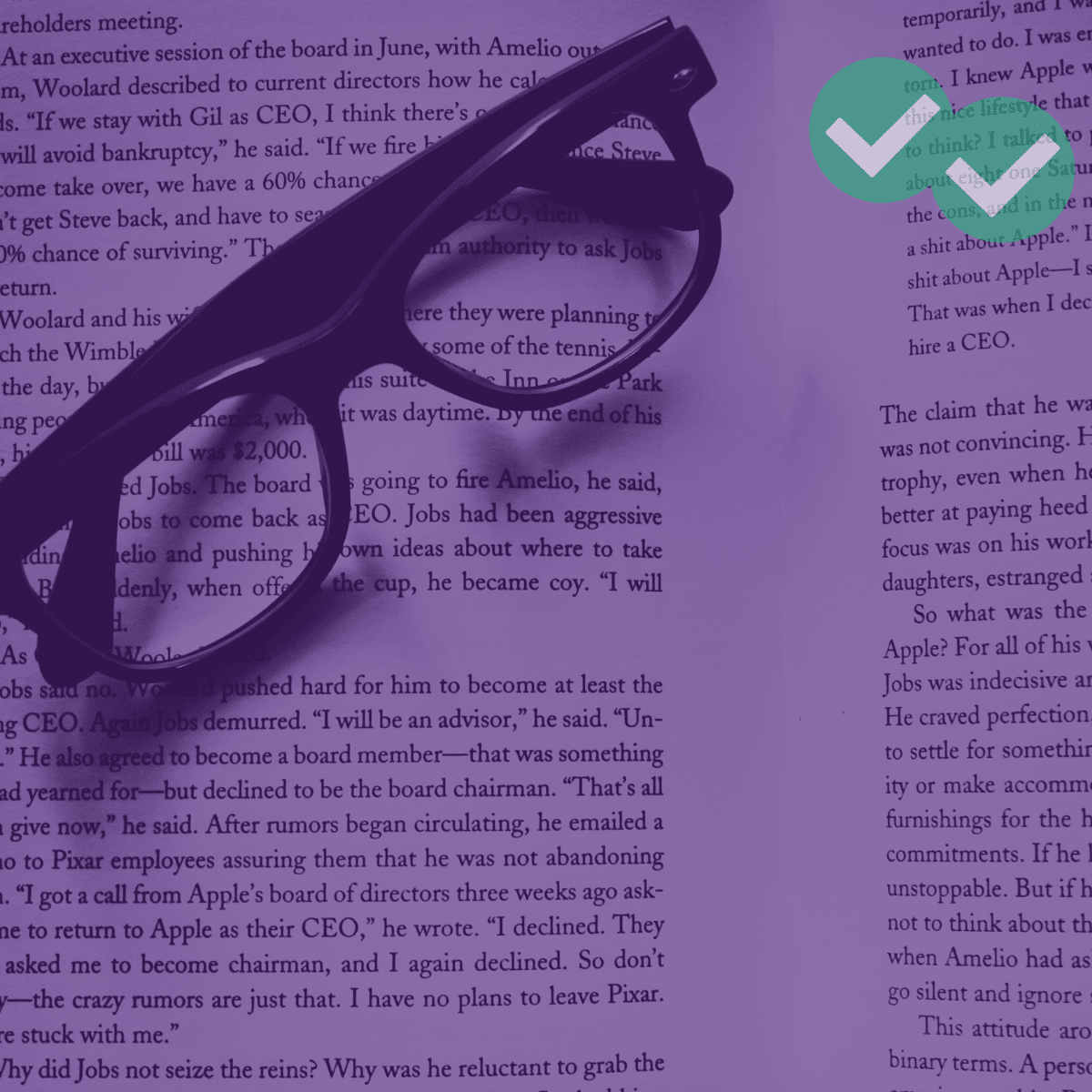
Pacing is essential for mastering GRE Reading Comprehension (RC) questions. By mastering pacing for both the passages and questions, you can enhance your overall score and ensure you have sufficient time for all the questions in each of the two GRE Verbal sections.
Know the Passages
GRE RC includes various types of passages that each require a strategic approach.
- Length and Complexity: Reading Comprehension passages tend to be between one hundred to several hundred words. The number of questions associated with a passage varies, but you should expect anything from 1-4, depending on passage length–longer passages tend to have more questions and vice versa. Most often, you’ll answer a standard multiple choice question. On occasion, however, you’ll be asked to select a particular sentence within the passage as the answer to a question.
At the end of the day, you’ll have encountered around 11 RC questions in total: Around 4 in the first, 18-minute passage and around 7 in the second, 23-minute passage.
- Types of Passages: Some passages may present complex ideas or dense vocabulary, while others may be more straightforward. They can be based on a wide-range of topics drawn from social science, natural science, humanities, and business. Recognizing how to efficiently navigate different types of passages will help you allocate your time effectively. For example, if you encounter a natural science passage filled with a bunch of scientific jargon, you may want to quickly skim for main ideas and then just dive right into the questions.
Critical Reasoning—also known as Paragraph Argument—is another type of RC passage. For these, you’ll read a short paragraph that presents an argument, and then answer just one multiple choice question about that argument. You might be asked to find an answer that weakens or strengthens the argument or be asked about some other element of the argument.
Know the Questions
RC questions vary in type and complexity; some demanding more cognitive engagement and time than others. And, while there are categorically “harder” types, much of what determines difficulty will depend on test takers and their unique set of strengths and weaknesses.
- Types of Questions: Most RC questions fall into categories like main idea, author’s purpose, passage detail, and inference. You will likely find that each type of question has its own time requirements. For instance, main idea questions usually take less time compared to inference questions, which often require deeper analysis and elevated critical thinking.
- Allocating Time: As a general guideline, aim to spend about 1.5 to 2 minutes on RC questions. However, if you find yourself struggling with a particularly challenging question, it may be wise to move on and come back–time permitting. This approach ensures that you do not sacrifice easier points elsewhere. To determine the question/passage types that pose a challenge for you, especially in regards to pacing, we highly recommend using an Error Log to keep track of your performance.
Know Your Strengths
Understanding your strengths and weaknesses across different question types can significantly improve your pacing strategy. Again, using an Error Log will help you identify them faster. But, there are other essential tools…
- Self-Assessments: Take timed practice tests to identify which areas you excel in and which present challenges. For example, if you find detail-oriented questions easy but struggle with inference questions (often thought to be the hardest type), tailor your approach accordingly. If you haven’t taken advantage of it yet, here is a
Free Full-Length GRE Practice Exam and score report from your friends here at Magoosh 😀 - Strategy Development: Once you know your strengths, adjust your pacing strategy accordingly. Be prepared to make multiple adjustments as you develop skills and are able to answer higher-complexity questions more adroitly.
- Adapting During the Test: Self-awareness can guide your approach even during the exam. If you notice that you’ve spent too much time on time-sucking, difficult questions, you should still be able to adapt your pacing strategy mid-test to ensure that you salvage enough time for all the questions. Adjusting a pacing strategy when it’s game time isn’t an innate skill for most test-takers. The ability to pivot on the fly comes from familiarity, which is gained through a whole lot of practice–especially of the timed variety.
Know When to Move on
A critical aspect of RC pacing is knowing when to move on from a question.
- Set Time Limits: Aim to set a personal time limit for each question—ideally, try not to spend more than 90 seconds on any single question. If you exceed this limit without making progress, consider skipping it.
- Fresh Perspective: Revisiting questions with a fresh perspective after answering others can often lead to new insights. If you skip a question, come back to it later if time allows; you might find the answer easier to identify after gaining some distance.
- Balancing Risks: While it’s essential to move on from difficult questions, be cautious not to skip too many. A well-balanced approach allows you to maximize your score by attempting both easier and more challenging questions.
- Leave Nothing Blank: Let’s say you don’t have time to return to a question or that you never intended to return to a question that just made absolutely no sense to you–that happens! That happens to the best of test-takers. If you don’t have the time or intention to return to a question you’ve skipped, be sure that you at least make a guess. Leave nothing blank! There is no penalty for incorrect answers on the GRE, so a correct guess will still get you the point.
Final Takeaways
Pacing for GRE Reading Comprehension requires careful planning and adaptability. Here are some final tips to keep in mind:
- Practice with Purpose: Regularly take timed practice tests to familiarize yourself with the pacing dynamics specific to Reading Comprehension. Use high quality materials, like
Magoosh, for the most accurate experience. - Analyze Your Performance: After each practice test, break out your Error Log to review which Reading Comprehension questions took the longest and why. Reflect on your choices and adjust your strategies accordingly.
- Stay Flexible: Be willing to modify your pacing strategy based on the flow of the test. If a particular passage or section feels easier or harder than expected, adjust your time management accordingly.
By mastering pacing specifically for GRE RC, you’ll enhance your ability to manage your time effectively, allowing your true understanding of the material to shine through on test day. Remember, with the right pacing strategy, you can navigate even the most challenging passages and questions with confidence.





